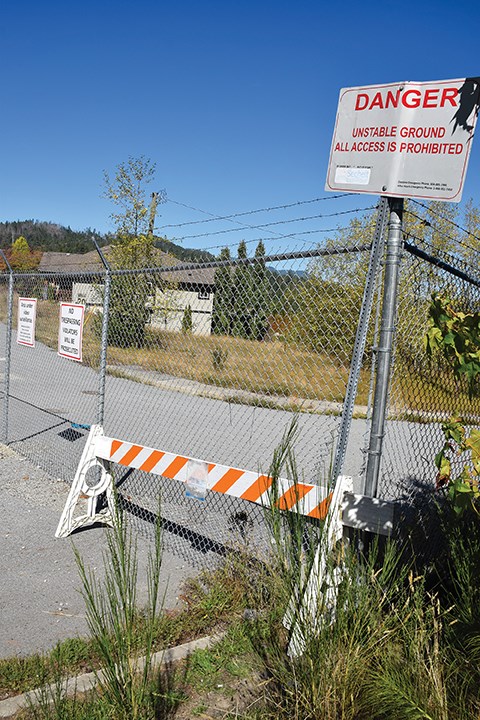BC Court of Appeal Justice David C. Harris has ruled in favour of the District of Sechelt, finding that the restrictive covenant filed on Seawatch subdivision properties releases the district from civil action damage claims from owners of eight of the parcels.
The Sept. 28 ruling was made on an appeal filed by Sechelt. It reversed an order made by Justice George Macintosh in August 2020.
Jeff Scouten, lawyer for the property owners involved in the action, said the group was disappointed by the decision.
“It leaves municipalities totally unaccountable for harm caused by negligent actions,” Scouten told Coast Reporter.
“We will likely be seeking leave to appeal to the Supreme Court of Canada. We believe these are issues of very broad importance to society.”
Scouten said his clients are “looking very carefully” at the reasons for the judgment.
“We’re concerned that this basically means that municipalities are not accountable for mistakes made not only in their approval of subdivisions but in their conduct generally in relation to geotechnically unsafe lands.”
Scouten’s clients began their legal action against Sechelt and others involved in the subdivision in August 2019. It followed being forced to abandon their homes after the February 2019 declaration of a state of local emergency by Sechelt which closed the subdivision. That action was taken due to risks posed by sinkholes that had opened up in the subdivision and concerns about subsurface instability.
Sechelt required that a covenant be filed on the Seawatch properties in the subdivision process in 2006, before any of Scouten’s clients purchased their lots.
That document was put in place to indemnify the municipality against claims arising from construction on and use of the lands in accordance with the geotechnical assessment completed by the developer’s engineer and attached to the covenant.
It describes the geotechnical attributes of the land, documented the sinkholes that had developed at the site, and set out how the infrastructure and building foundations should be designed. Sechelt maintained that any future property owner should have been aware of the geotechnical attributes of the land.
Scouten noted the Sept. 28 decision only releases claims related to the covenant. His clients are seeking compensation from Sechelt and the province under the Emergency Program Act. Those claims remain under judicial case review and a mediation may be a possibility as early as next spring.
His clients are also pursuing damages from the developer, Concordia Seawatch Ltd., and other parties involved in the development and sale of land in the subdivision.
“This is a very tough and determined group. They are disappointed by the results but not dispirited by them. We will just regroup and carry on,” said Scouten.
The District of Sechelt declined to comment on the appeals court decision.



